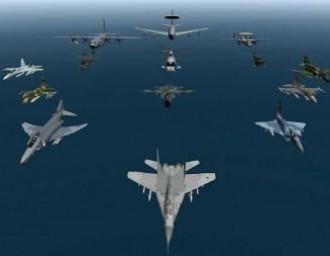Aliaksandr Alesin: Belarusan army has twofold perception of NATO

Cooperation between Belarus and NATO is restrained by mutual distrust at the highest political level. However, former hostility against the Western military block also becomes a thing of the past.
This opinion was shared to the EuroBelarus Information Service by the military observer Aliaksandr Alesin.
From February 17 to February 22 within the framework of NATO program “Partnership for Peace” a group of experts of the joint command of joint NATO armed forces “Brunsum” is on a visit in Belarus. The experts came to our country in order to run a course on army and civil cooperation, the press service of the Ministry of Defence of the Republic of Belarus reported.
NATO and Belarus started to cooperate quite long time ago. In 1995 our country joined the program “Partnership for Peace”, and in 1998 under NATO headquarters a permanent mission started its work.
The core of the program “Partnership for Peace” consists in preparing service men to cooperate under common peacemaking missions. The program includes language studies and learning the basis of cooperation itself.
Within the program’s framework Belarusan Peacemaking Company adopts the methods, preparing to participate in the peacemaking missions. “NATO soldiers who took part in the missions in different countries – Afghanistan, Iraq, in the Balkans – share the experience with our peacemakers”, - told Aliaksandr Alesin.
Besides, Belarusan officers participate in peacekeeping operations and NATO exercise as observers: “By this they acquire valuable experience. And these are not only military missions, but humanitarian missions, too”, - noted the expert.
Things are still where they started
However, despite the fact that cooperation of Belarus and NATO lasts for a rather long time, there is no visible cooperation development. Under many years the program keeps including one and the same paragraphs. “I think that it is mostly our authorities who restrict the program development”, - assumed Aliaksandr Alesin.
According to him, the reason for that is the mutual distrust, lack of understanding and, perhaps, hostility at the highest political level of Belarus and NATO countries. “This is what prevents further development of cooperation programs”, - said the expert.
Considering that the Belarusan authorities more than once stated their readiness to participate in the peacemaking missions within the Collective Security Treaty Organization (CSTO) cooperation in preparing peacemakers should only be enlarged. “We can get great experience from the program “Partnership for Peace”, and cooperation would only be beneficial for our future peacemakers”, - highlighted Aliaksandr Alesin.
He recalled about an agreement according to which CSTO peacemakers can work under the UN flag. For now peacekeeping missions are most probable in Central Asia, Armenia and Azerbaijan, as well as Abkhazia and South Ossetia.
Sitting on the fence
It is absolutely possible that Belarusan peacemakers will participate in these missions, too. “Belarus wants to win international prestige. And holding peacekeeping missions in different world regions can further that”, - noticed Aliaksandr Alesin.
Thus, we can hardly wait that Belarusan side refuses further cooperation within the framework of NATO program “Partnership for Peace”. And the visit in question only testifies to that. Nevertheless, we should also restrain from our expectations of cooperation development due to the political dissension between Belarus and countries-members of NATO, believes the expert.
All in all, Belarusan army still has twofold perception of NATO. On the one hand, educational work in Belarusan armed forces is still built on viewing NATO as potential adversary. On the other hand, military personnel are well aware that the probability of armed confrontation is extremely low. “NATO doesn’t have that image of a savage enemy anymore”, -emphasized Aliaksandr Alesin, noting that open frontiers and information availability though the Internet gradually destroy the negative image of the Western military bloc.
-
03.01
-
07.10
-
22.09
-
17.08
-
12.08
-
30.09








































